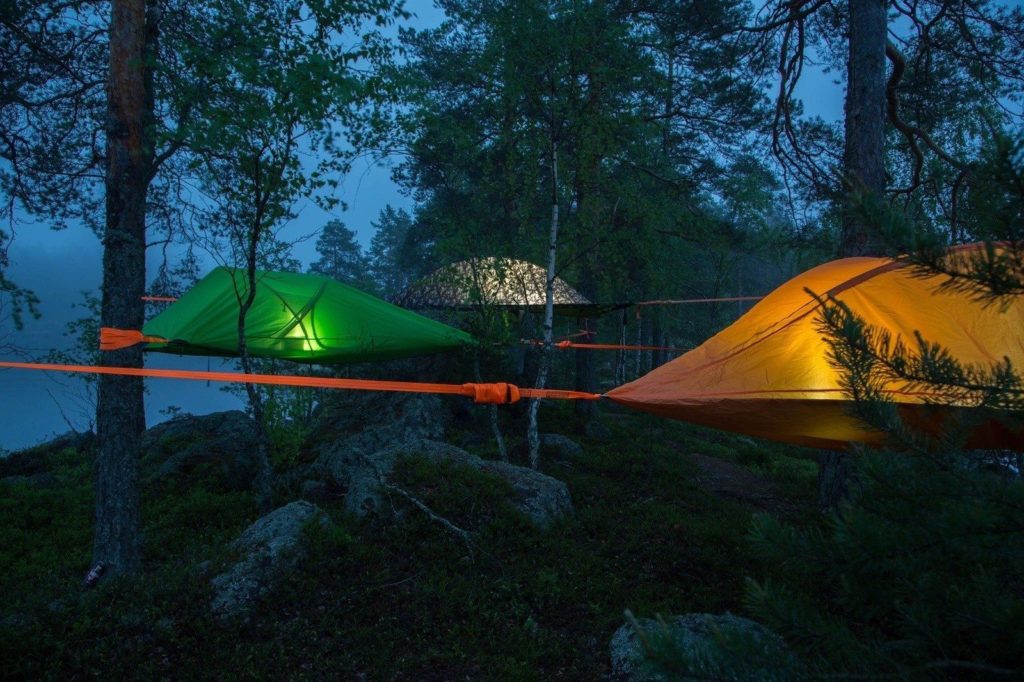Camping in the wild is a unique and unforgettable outdoor experience that offers the opportunity to disconnect from the modern world and reconnect with nature. Whether you’re an experienced camper or a beginner, there are a few tips and tricks that can help you make the most of your camping trip and ensure an unforgettable outdoor experience. In this article, we’ll provide a guide for camping in the wild, including tips for planning your trip, setting up camp, and staying safe in the wilderness.
Plan Ahead
The key to a successful camping trip is planning ahead. Before you head out into the wilderness, make sure you have a clear plan for where you’ll be camping, how you’ll be getting there, and what supplies you’ll need. Research the area you’ll be camping in to understand the weather, terrain, and potential hazards, and make sure to bring appropriate gear and clothing.
Choose the Right Gear
Choosing the right gear is essential for a comfortable and safe camping experience. Make sure to invest in high-quality camping gear, including a sturdy tent, sleeping bags, and camping chairs. Consider the weather and terrain you’ll be camping in and bring appropriate gear, such as waterproof jackets, warm layers, and hiking boots.
Set Up Camp Properly
Setting up camp properly is essential for a safe and comfortable camping experience. Choose a flat and level site for your tent, and make sure to clear away any debris or rocks. Use a ground cloth or tarp under your tent to protect it from moisture and sharp objects, and stake down your tent securely to protect it from wind and rain.
Build a Campfire Safely
A campfire can be the highlight of a camping trip, but it’s important to build it safely and responsibly. Choose a designated fire pit or build your own using rocks or a fire pan, and clear away any flammable materials within a 10-foot radius. Use dry and seasoned wood to start your fire, and never leave it unattended.
Pack Out Your Trash
One of the most important aspects of camping in the wild is leaving no trace. Make sure to pack out all of your trash, including food scraps, and dispose of it properly. Bring reusable containers and utensils to minimize waste, and avoid using disposable products.
Respect Wildlife
Respecting wildlife is essential for a safe and enjoyable camping experience. Keep a safe distance from animals and avoid approaching them or feeding them. Store your food in bear-resistant containers or hang it from a tree at least 10 feet off the ground to avoid attracting animals.
Leave No Trace
When camping in the wild, it’s important to leave no trace. Make sure to pack out all of your trash, including food scraps, and dispose of it properly. Avoid damaging vegetation or disturbing wildlife, and leave the campsite better than you found it.
Stay Safe
Staying safe is essential for a successful camping trip. Always let someone know where you’re going and when you’ll be back, and bring appropriate safety gear, such as a first aid kit and a map and compass. Be aware of potential hazards, such as inclement weather or wildlife, and take appropriate precautions.
As you embark on your camping trip in the wild, take the time to appreciate the beauty and wonder of nature. Disconnect from the modern world and connect with the wilderness, and enjoy the unique and unforgettable experience that camping in the wild has to offer.
In conclusion, camping in the wild is a unique and unforgettable outdoor experience that offers the opportunity to disconnect from the modern world and connect with nature.
By planning ahead, choosing the right gear, setting up camp properly, building a campfire safely, packing out your trash, respecting wildlife, leaving no trace, and staying safe, you’ll be able to make the most of your camping trip and ensure an unforgettable outdoor experience. So why not start planning your own camping trip in the wild today?
Explore the natural beauty of the world and reconnect with nature, and enjoy the many benefits that camping in the wild has to offer.
